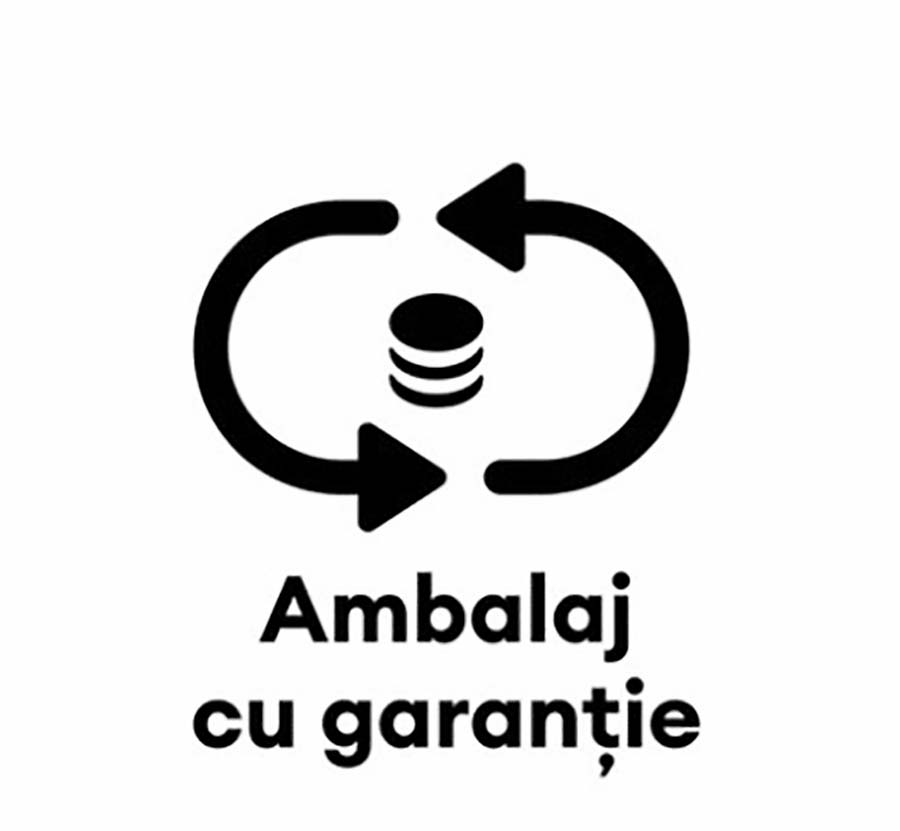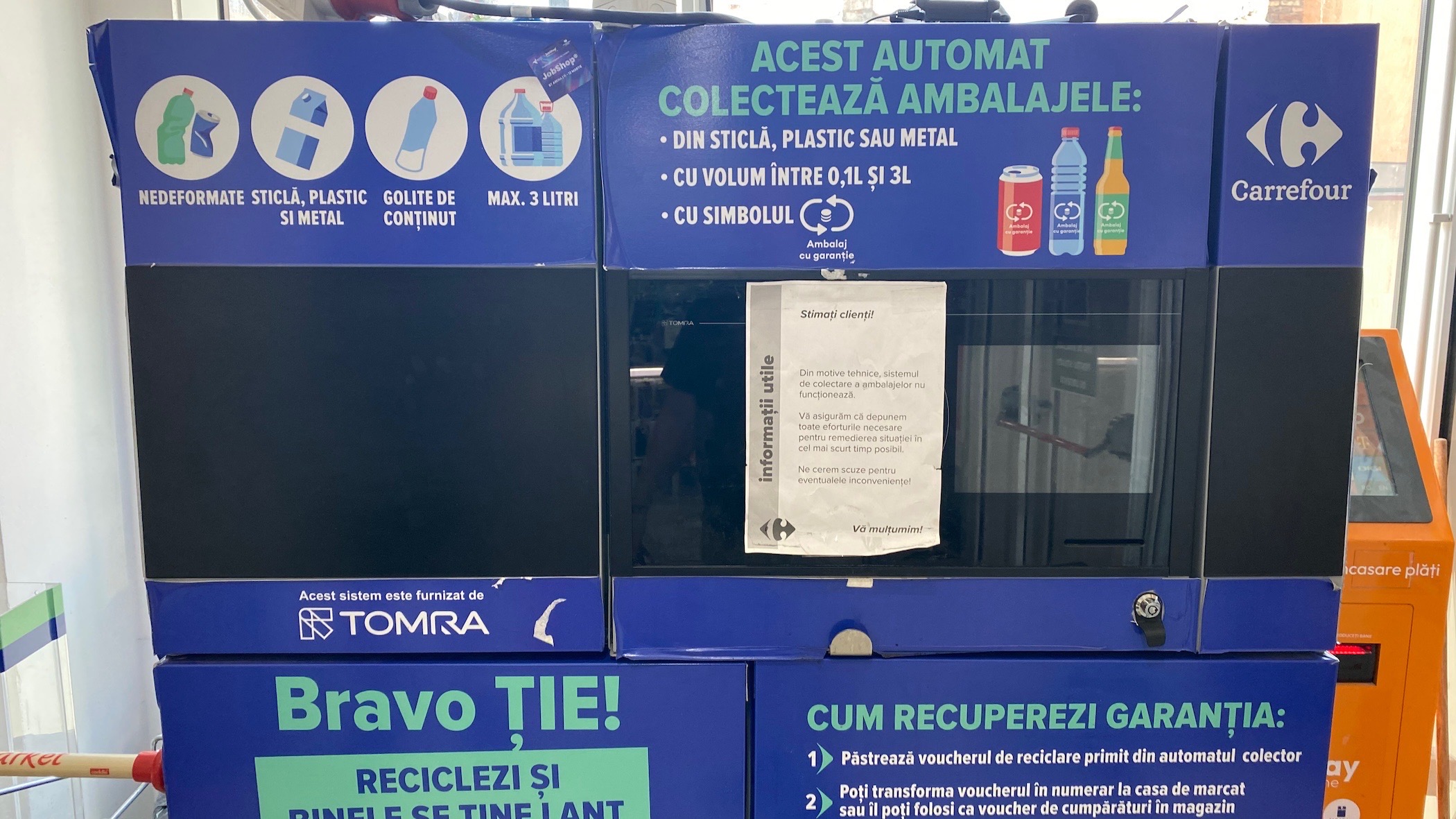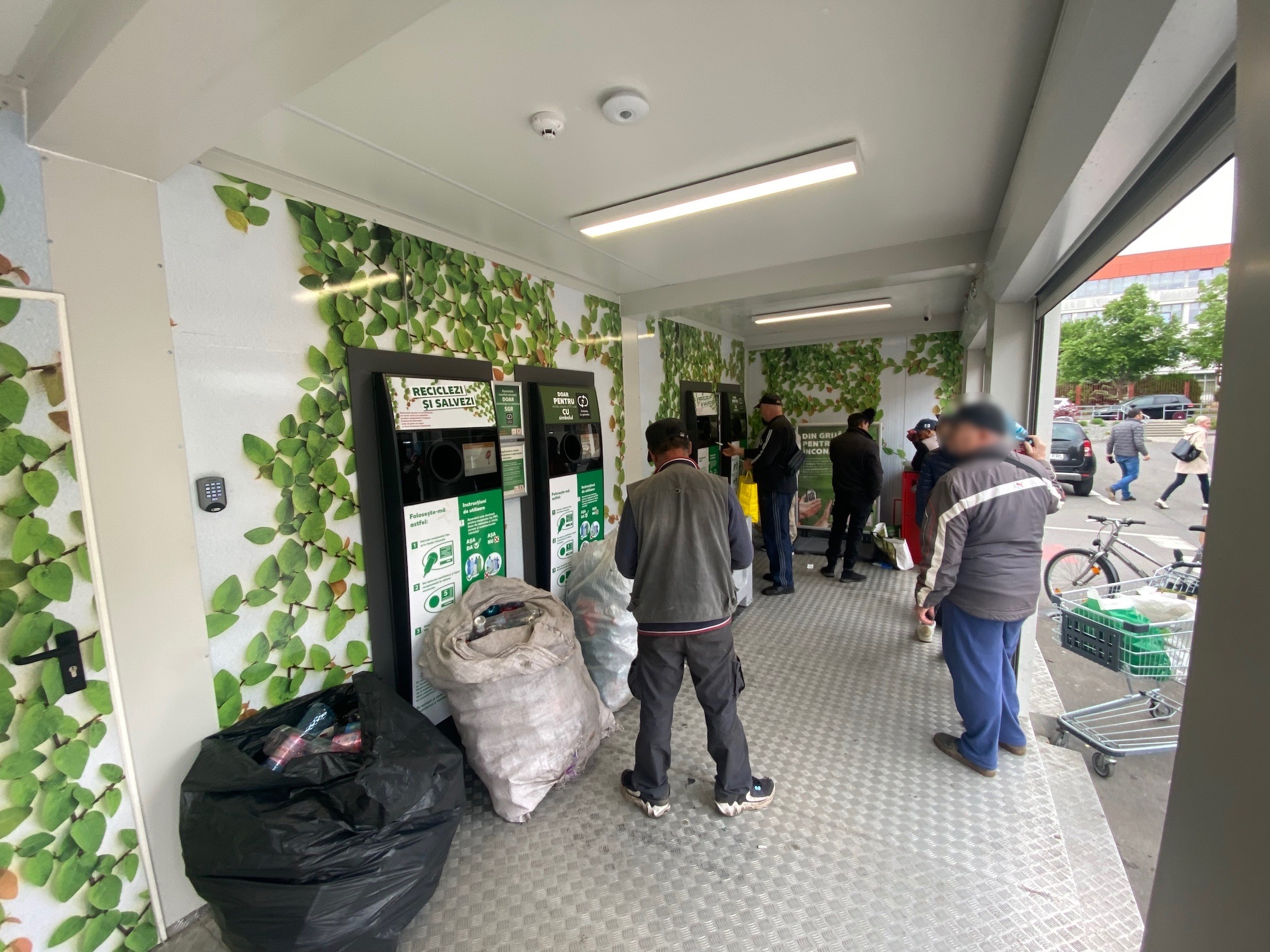
The ambitious Deposit-Return System (DRS), or “ambalaj cu garantie” for beverage packaging, designed to promote recycling and environmental sustainability, is facing significant operational hurdles. Numerous residents have reported persistent issues with automated return machines, leading to frustration and confusion about their rights and retailers' responsibilities under the DRS regulations.
The DRS, managed by RetuRO Sistem Garanție Returnare S.A., mandates that retailers who sell beverages in non-reusable packaging must accept returns of these containers and refund the 0.5 lei deposit to consumers. This system covers glass, plastic, and metal packaging with volumes between 0.1 and 3 litres, including for items like water, soft drinks, beer, cider, wine, and spirits.
However, recent visits to several stores in Cluj-Napoca revealed widespread issues with the automated return machines. At multiple locations, machines were either out of service or displayed error messages requiring assistance. Despite clear regulations, many retailers refused to manually process returns, citing an inability to contact the companies responsible for maintaining the machines.

Legal Responsibilities and Consumer Rights
According to the DRS regulations, retailers are obligated to accept eligible packaging and provide the deposit refund, even if their automated systems are non-functional. Failure to comply with these obligations can result in fines ranging from RON 4,000 to RON 50,000 (approximately €800 to €10,000). The law also stipulates that retailers must have alternative means to handle returns manually when machines fail.
Consumers encountering non-compliance can report these issues to the DRS administrator, RetuRO, or the National Environmental Guard (Garda Naţională de Mediu). Despite these provisions, many residents have faced repeated refusals from retailers, exacerbating the frustration and diminishing the effectiveness of the DRS.
The problem is not isolated. Numerous stores across Cluj-Napoca display signs indicating non-functional machines and a lack of immediate solutions. For instance, in one Mega Image store, a sign read, “Due to technical issues, our machine cannot collect packaging at this time. You can return the packaging at any nearby store.” Yet, consumers who attempted to follow this advice often faced similar refusals elsewhere.
Voices of Frustration
As a local resident, I visited four different stores in one day, and each one had a machine that was either out of service or turned off. When I asked the staff to process my return manually, they just shrugged and said they couldn’t help me. It’s incredibly frustrating, especially as they're required to accept this packaging. I actually tried reporting this to both Garda Naţională de Mediu, who ignored my request for information, simply saying they're not qualified to answer the question and then never responded to my email and also tried to file a complaint with ANPC, who handle consumer protection, but their system doesn't accept my non-Romanian ID card or passport and their phone line is not working either.
Such experiences highlight a significant gap between the regulatory framework and its practical implementation. While the DRS aims to enhance recycling rates and environmental sustainability, operational inefficiencies and retailer non-compliance undermine these goals.
The Risk of Discouragement
If these issues persist, there is a growing concern that the DRS will dissuade people from using the service altogether. Many residents have resorted to throwing their packaging away rather than risking a fruitless search across multiple stores. This not only defeats the purpose of the DRS but also exacerbates waste management problems.
Moreover, some individuals have been observed rummaging through trash bins to collect packaging for the deposit, highlighting a lack of security and proper assistance from retailers and service providers. This not only undermines the system’s integrity but also raises health and safety concerns. Without adequate maintenance and oversight, the system risks becoming inefficient and unwelcoming.

A Call for Action
To address these persistent issues, it is imperative that:
- Retailers Fulfill Their Obligations: Retailers must be reminded of their legal responsibilities to accept returns and refund deposits manually if machines are down.
- Enhanced Maintenance and Support: Companies responsible for maintaining the return machines need to be more responsive and ensure timely repairs to minimize downtime.
- Consumer Awareness: Consumers should be informed of their rights under the DRS and encouraged to report non-compliance to the relevant authorities.
The DRS in Cluj-Napoca, despite its well-intended design, faces significant challenges that need urgent resolution. Retailers must step up to meet their obligations, ensuring that the system operates smoothly and efficiently. Only through collective effort can the city achieve its recycling and sustainability goals, fostering a cleaner and greener environment for all.
For more information or to report non-compliance, consumers can contact RetuRO at returosgr.ro or the National Environmental Guard at [email protected].



